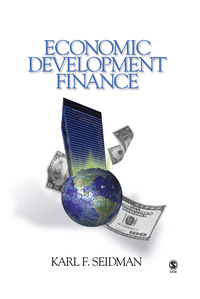Question
read the case and answer the three questions below: Five years after the launch of economic reforms designed to transform Russias lumbering state-directed economy into
| read the case and answer the three questions below: | |
| Five years after the launch of economic reforms designed to transform Russias lumbering state-directed economy into a modern market system, Russia was experiencing unprecedented capital flight. In 1996 some $22.3 billion left the country, most of it illegally. In contrast, a mere $2.2 billion in foreign investment flowed into the country. According to data from the European Bank for Reconstruction and Development, between 1989 and 1996 foreigners invested just $5.3 billion in Russia, compared to foreign investment of about $11.5 billion in much smaller former Communist state, Hungary. One reason for this is that Russia consistently tops the charts as the riskiest investment destination tracked by the Economist Intelligence Unit. The risks include a complex tax code that is always changing and randomly enforced, often at the expense of foreign companies. Weak and untested property and contract safeguards, endless regulations often enforced by bureaucrats, and a playing field made uneven by trading and tax favors granted by the Russian government to Russian companies are also frequently cited as contributing to the high risks associated with investment in Russia. Russias privatization laws have also tended to discriminate against foreign investors. Most privatization schemes in Russia favor incumbent management and/or local companies. For an example, a shares for loans scheme in 1995 saw a dozen large companies sold for a fraction of their market value to several large Moscow banks. Foreign investors were not given an opportunity to bid on these assets. Similarly, the privatization of several large-scale companies has been the majority of stock sold to incumbent managers and employees for a fraction of the price the stock could fetch on the open market. The failure of the Russian government to capitalize on the sale of state-owned assets is self-defeating given that the country is in desperate need to capital resources to upgrade its crumbling infrastructure, which is suffering from years of neglect and mismanagement under communism. The Russian oil and gas industry is and example. Russia has the largest oil and gas reserves in the world, but it is finding it difficult to get these reserves out of the ground and to the international market. Russian oil output plummeted after the collapse of the Soviet Union, from 569 million tons in 1988 to 305 million tons in 1996. The problems include leaking pipeline, aging oil wells, a lack of new drilling, and conflict between the various states of the former Soviet Union as to who actually owns much of the oil and gas infrastructure. According to estimates by the World Bank, Russia needs to spend between $40 billion and $50 billion per year just to maintain oil and gas production at current levels. Boosting production back to the levels achieved in the 1980s could require investments of $80 billion to $100 billion per year-money that Russia does not have. In an attempt to reverse this slide, in November 1997 the government of Boris Yeltsin announced that Russias oil and gas industries would be open to foreign investment. The decree signed by Yeltsin allowed foreign investors to buy 100 percent of Russian oil companies. Within days, Royal Dutch/Shell had teamed up with Gazprom, Russias giant gas monopoly, to bid for Rosneft, the last big state-owned oil group to be privatized. This was quickly followed by a deal under which British Petroleum announced that it would purchase 10 percent of another Russian company, Sidanco, giving it a stake in a huge oil field near the Chinese border. The benefits that flow to Russia from such investments could be substantial. In a report prepared for the Russian parliament, Western oil companies said foreign development of just six identified oil and gas fields could create more than 550,000 jobs and earn about $450 billion over their operating lives. However, before they are prepared to make further large-scale investments, many Western companies say they need stronger legal and tax guarantees. Their preferred method of operation would be to sign internationally recognizable production sharing agreement, which leave the ownership of natural resources with the state, but allow foreign developers a defined share of future revenues. Although the Russian government has tried to enact such legislation, the Communist-dominated parliament has resisted any attempt to pass such laws. CASE DISCUSSION AND QUESTIONS.
| |
Step by Step Solution
There are 3 Steps involved in it
Step: 1

Get Instant Access to Expert-Tailored Solutions
See step-by-step solutions with expert insights and AI powered tools for academic success
Step: 2

Step: 3

Ace Your Homework with AI
Get the answers you need in no time with our AI-driven, step-by-step assistance
Get Started


